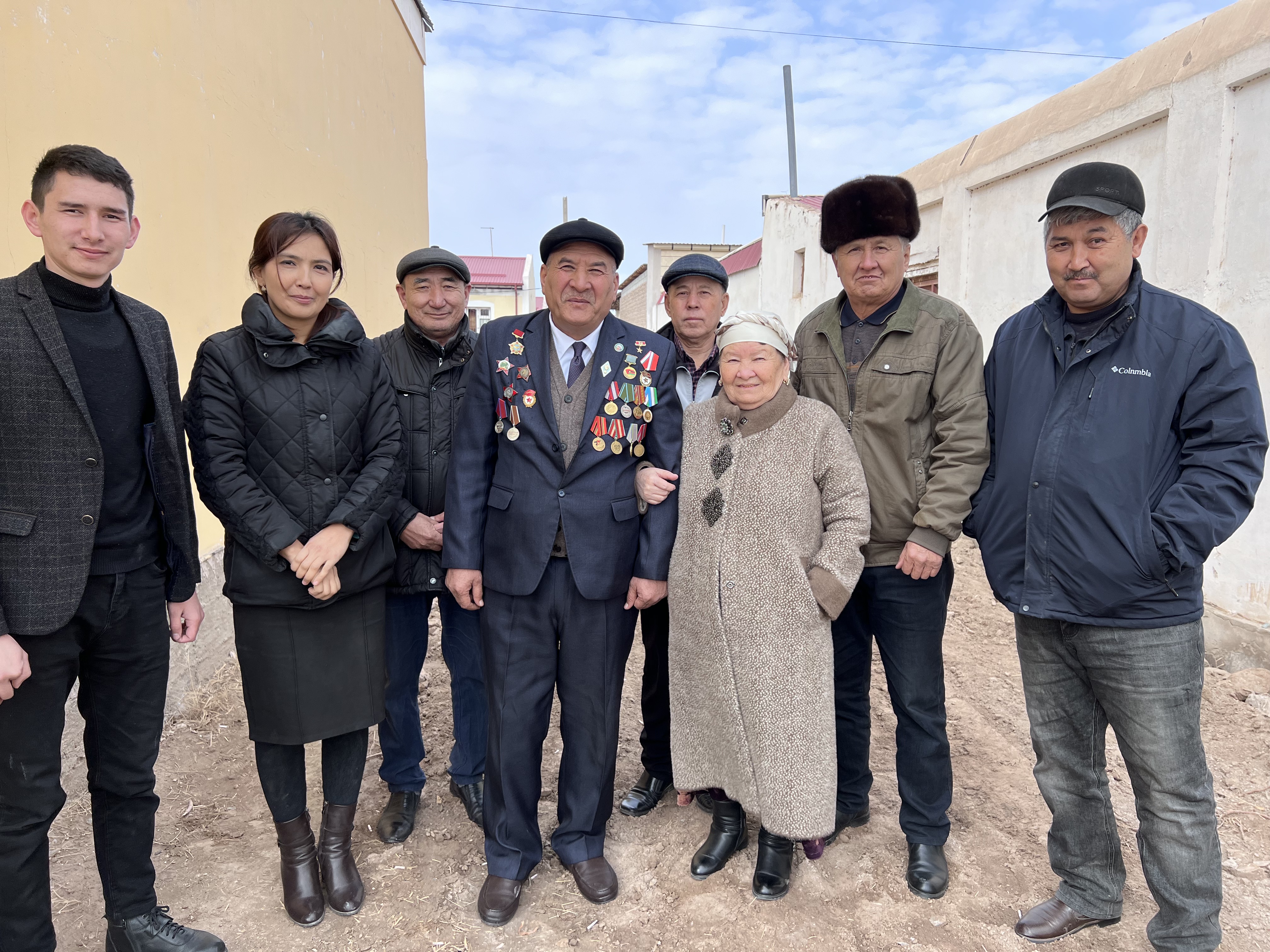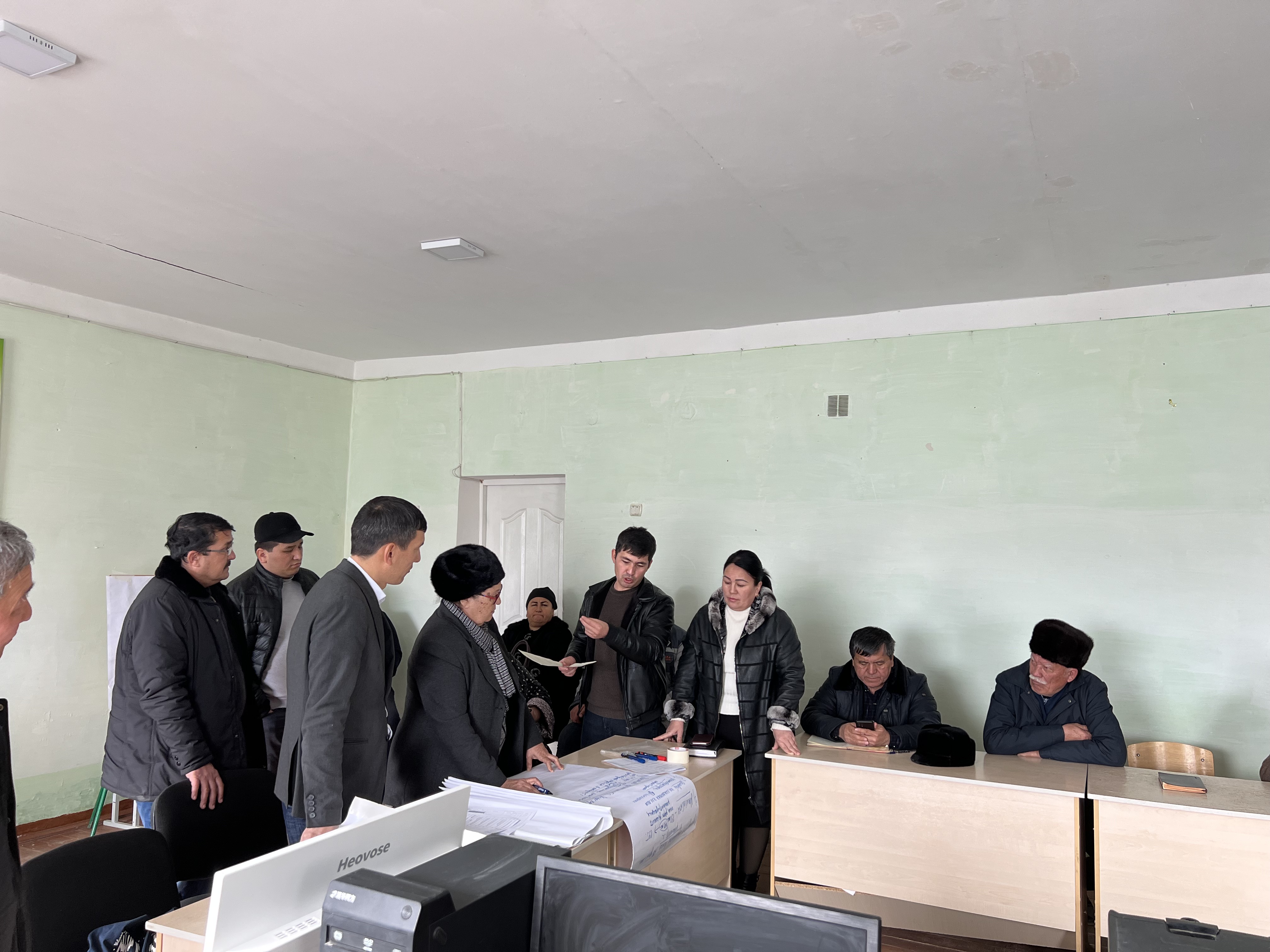Author: Nargiza Mukhtarova
Involving local communities in decision-making processes is essential for sustainable rural development
March 6, 2023

The active participation of local people in identifying priority areas to meet needs in their communities through the development of Community Development Plans, which will form the basis for construction and investment projects, is a key component of the Ministry of Economy and Finance and UNDP joint project 'Sustainable Rural Development', funded by the Islamic Development Bank and the OPEC Fund for International Development.
The project provides for identification of needs of communities on development of social infrastructure, solution of economic and environmental problems in 170 mahallas of 20 districts of the Republic of Karakalpakstan, Navoi, Bukhara and Khorezm regions through elaboration of Community Development Plans. To date, more than 4,500 residents of 113 communities in the target regions participated in the development of 28 Community Development Cluster Plans (CDPs).

The friendly residents of Obi Hayot mahalla in Beruni district of the Republic of Karakalpakstan shared their impressions and experiences in developing the Community Development Plan.
"There are many problems in our mahalla, but the main one is the quality of the roads. All the roads have fallen into disrepair, which has led to reduced safety and caused frequent accidents. Bad roads also harm the economy by hindering the development of agriculture and entrepreneurship," said Farhad Isakov, a resident of the mahalla.
Tamara Sherimbetova, a retired former Russian language teacher, pointed out the dangers of the A380 road, across which children from neighbouring districts have to run when they go to school No. 19.

Despite the current state of problems, people believe that one day their mahalla become a model Mahalla and spiritualised by this goal they actively participate in all the discussions and meetings of the Initiative Group.
As part of the project, UNDP's Community Mobilisation Advisers (facilitators) provide training and field sessions to local people to assess their community needs and help them draw up effective Community Development Plans.
They use participatory methods such as: area maps, seasonal calendars, institutional analysis, pie charts, daily schedules, time lines, matrix when identifying problems with local residents.
Nodira Ismoilova, a resident of the mahalla, noted that through brainstorming they were able to identify and discuss the main problems in mahalla. Then by open and consensual voting they identified priority areas for the Community development plan.

The outcome of each session is the establishment of an Initiative Group from amongst active individuals in the community who take part in these activities on a voluntary basis.
"It is interesting that when selecting members of the Initiative Group, our residents themselves nominated candidates. It is encouraging that among those selected there are experts who help look at the problem professionally," says Rashid Kushanov, head of the Initiative Group and chairman of Obi Hayot mahalla.
Kakhramon Koshanov, Deputy Khokim of Beruni District for Industry Development, Capital Construction, Communication and Municipal Services, also shared his impressions: "I am responsible for about 80 per cent of the mahalla population's problems. My work became easier when six of the 40 mahallas in Beruni district were included in the Sustainable Rural Development project".

- "For example, the government has allocated funds to improve the road sector in our district, but we will allocate them to the remaining 34 mahallas so that more road lengths can fall under reconstruction, as the project already covers the needs of 6 communities."
On the methodology for preparing the Community Development Plan (CDP), he also noted: "I was lucky enough to participate in a three-day UNDP CDP development session; it is a new approach to problem-solving, where initiatives come from the bottom up. I try to apply this knowledge in my work. It would be useful to teach this approach to all government officials. Obviously, it gives people confidence in the government".
UNDP, through this project, supports the Ministry of Economy and Finance to improve rural livelihoods by creating access to basic infrastructure and social services, creating economic opportunities and strengthening participatory local governance processes in targeted villages.
To learn more about the project, click here.

 Locations
Locations


